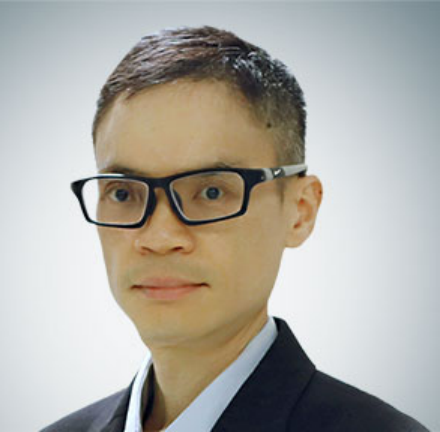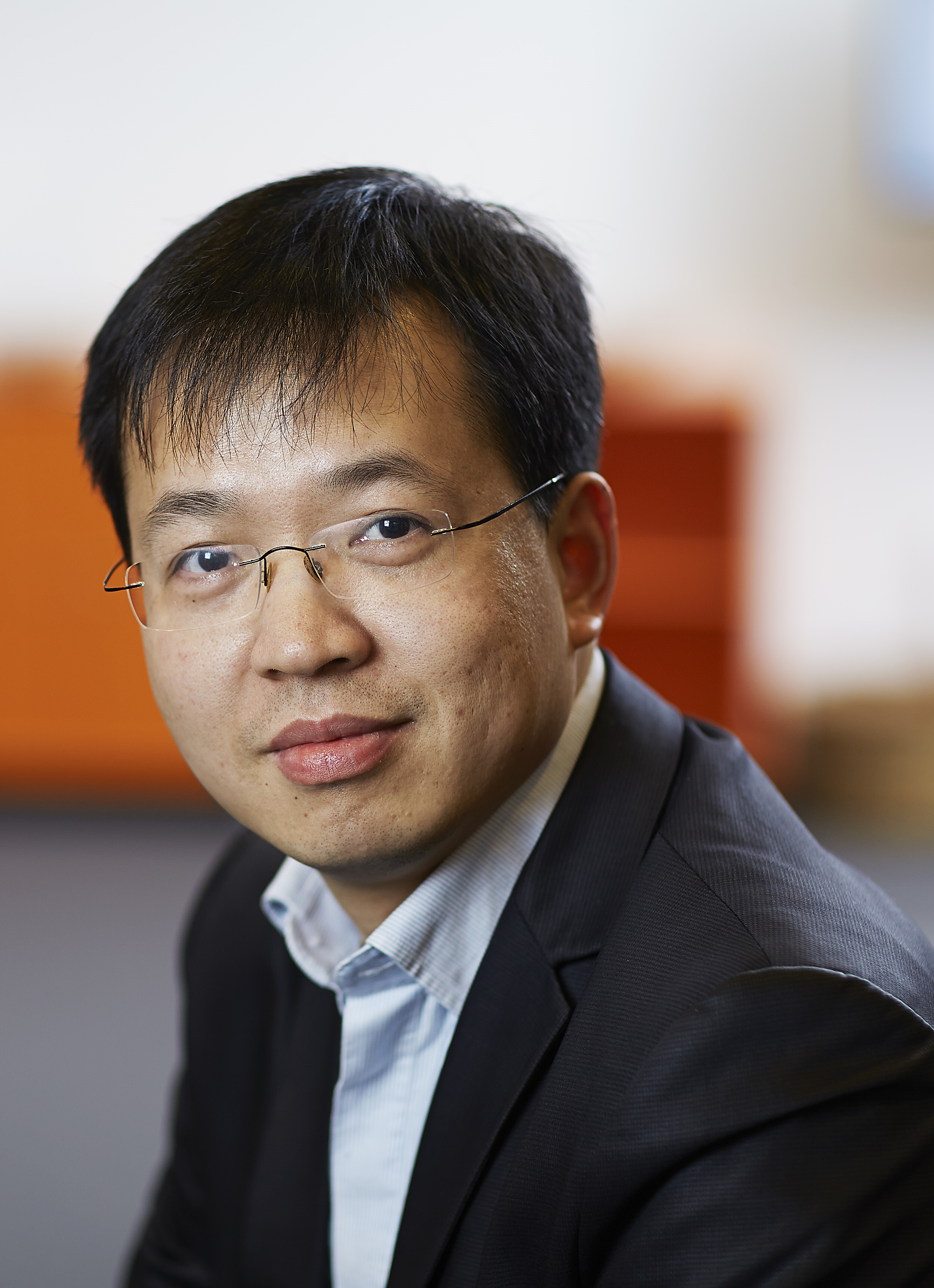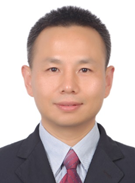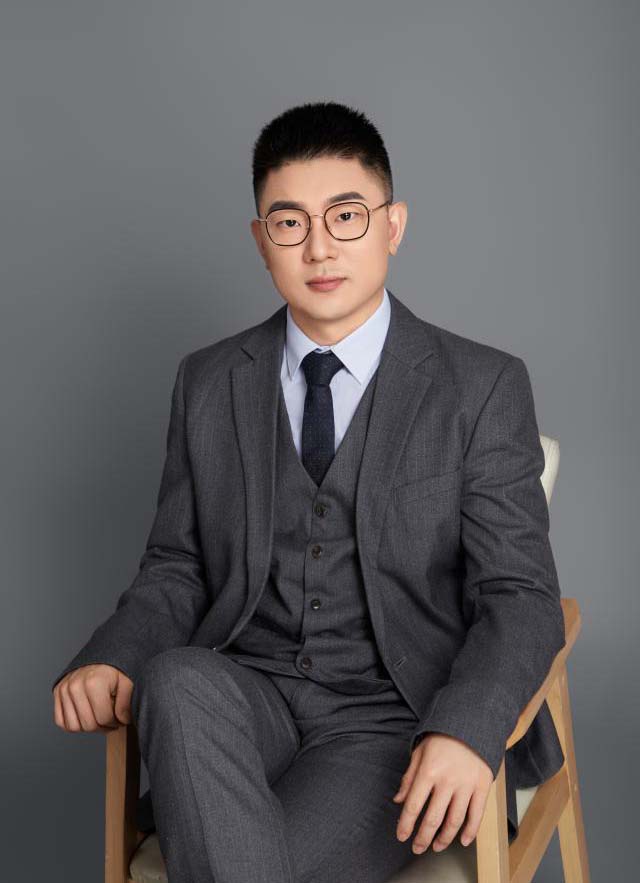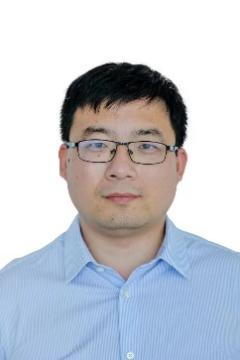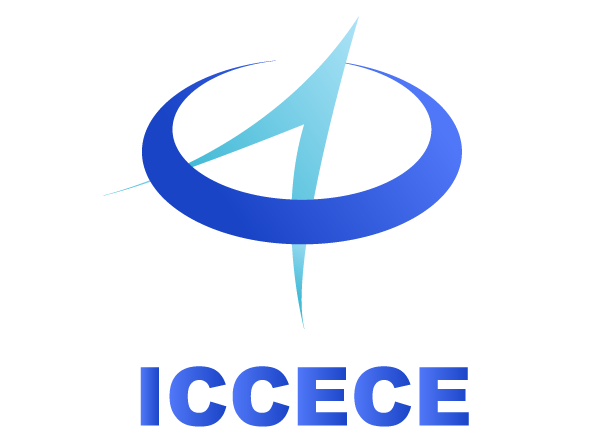
| Prof. Dusit (Tao) Niyato, Nanyang Technological University, Singapore IEEE Fellow, IET Fellow Dusit Niyato is currently a President's Chair Professor in the College of Computing & Data Science (CCDS), Nanyang Technological University, Singapore. He received B.E. from King Mongkuk’s Institute of Technology Ladkrabang (KMITL), Thailand in 1999 and Ph.D. in Electrical and Computer Engineering from the University of Manitoba, Canada in 2008. Dusit's research interests are in the areas of mobile generative AI, edge intelligence, quantum computing and networking, and incentive mechanism design. Currently, Dusit is serving as Editor-in-Chief of IEEE Transactions on Network Science and Engineering (TNSE). He is also an area editor of IEEE Communications Surveys and Tutorials, IEEE Transactions on Vehicular Technology (TVT), topical editor of IEEE Internet of Things Journal (IoTJ), lead series editor of IEEE Communications Magazine, and associate editor of IEEE Transactions on Wireless Communications (TWC), IEEE Transactions on Mobile Computing (TMC), IEEE Wireless Communications, IEEE Network, IEEE Transactions on Information Forensics and Security (TIFS), IEEE Transactions on Cognitive Communications and Networking (TCCN), IEEE Data Descriptions, IEEE Transactions on Services Computing (TSC), and ACM Computing Surveys. He was also a guest editor of IEEE Journal on Selected Areas on Communications. Dusit is the Members-at-Large to the Board of Governors of IEEE Communications Society for 2024-2026. He was named the 2017-2024 highly cited researcher in computer science. He is a Fellow of IEEE and a Fellow of IET. The Speech Title: Toward Scalable Generative AI via Mixture of Experts in Mobile Edge Networks Abstract: The evolution of generative artificial intelligence (GenAI) has driven revolutionary applications like ChatGPT. The proliferation of these applications is underpinned by the mixture of experts (MoE), which contains multiple experts and selectively engages them for each task to lower operation costs while maintaining performance. Despite MoE's efficiencies, GenAI still faces challenges in resource utilization when deployed on local user devices. Therefore, we first propose mobile edge networks supported MoE-based GenAI. Rigorously, we review the MoE from traditional AI and GenAI perspectives, scrutinizing its structure, principles, and applications. Next, we present a new framework for using MoE for GenAI services in Metaverse. Moreover, we propose a framework that transfers subtasks to devices in mobile edge networks, aiding GenAI model operation on user devices. Moreover, we introduce a novel approach utilizing MoE, augmented with Large Language Models (LLMs), to analyze user objectives and constraints of optimization problems based on deep reinforcement learning (DRL) effectively. This approach selects specialized DRL experts, and weights each decision from the participating experts. In this process, the LLM acts as the gate network to oversee the expert models, facilitating a collective of experts to tackle a wide range of new tasks. Furthermore, it can also leverage LLM's advanced reasoning capabilities to manage the output of experts for joint decisions. Lastly, we insightfully identify research opportunities of MoE and mobile edge networks. |
Prof. Yan Zhang, University of Oslo, Norway IEEE Fellow, IET Fellow, Member of Academia Europaea, Member of Royal Norwegian Society of Sciences and Letters Academy, Member of Norwegian Academy of Technological Sciences, "Highly Cited Researcher" Yan Zhang is currently a Full Professor with the Department of Informatics, University of Oslo, Norway. His research interests include next-generation wireless networks leading to 6G, green and secure cyber-physical systems. Dr. Zhang is an Editor for several IEEE transactions/magazine. Since 2018, Prof. Zhang has been listed as a Highly Cited Researcher by Clarivate Analytics (i.e., Web of Science). He is Fellow of IEEE, Fellow of IET, elected member of Academia Europaea (MAE), elected member of the Royal Norwegian Society of Sciences and Letters (DKNVS), and elected member of Norwegian Academy of Technological Sciences (NTVA). The Speech Title: Ubiquitous Computing Power Networks Abstract: Firstly, we introduce the concept and model of ubiquitous computing power networks. Then, new and unique scientific research problems in ubiquitous computing power networks are defined and solved, including the optimal allocation of computing resources, computing power collaboration and clustering mechanism, and distributed computing power sharing. Finally, we point out the future scenarios and open questions of ubiquitous computing power networks. |
|
| Prof. Geyong Min, University of Exeter, UK Professor Min Geyong is the Chief Professor of Computer Science at the University of Exeter in the United Kingdom. Professor Min Geyong has made a series of original scientific research achievements with important application value in computer science, mobile Internet, wireless communication, Internet of Things, cloud computing, big data and other fields, and published more than 300 international important academic journals/conference papers, including more than 160 international journal papers (including international famous journals, such as IEEE/ACM Transactions on Networking, IEEE Journal on Selected Areas in Communication,IEEE Transactions on Computers,IEEE Transactions on Mobile Computing, IEEE Transactions on Parallel and Distributed Systems,IEEE Transactions on Multimedia,IEEE Transactions on Communications,IEEE Transactions on Wireless Communications, And 150 international academic conference papers (including important international conferences such as IEEE-INFOCOM, IEEE-ICDCS, ACM-SIGCOMM-IMC, IPDPS, GLOBECOM, and ICC). In addition, Min Geyong co authored 7 books and 18 book chapters with others. His academic paper won the Best Paper Award at the 2016 IEEE International Conference (SOSE-2013), the Best Paper Award at the 2015 IEEE International Conference (GmartCity-2015), the Best Paper Award at the 2013 IEEE International Conference (GreenCom-2013), the Best Paper Award at the 2010 IEEE International Conference (TrustCom-2010), the Best Paper Award at the 2009 IEEE International Conference (CSE-2009), and the Best Paper Award at the 2007 IEEE International Conference (AINA-2007). His doctoral student received the Best Student Paper Award at the 2008 International Conference (ICAC-2008). Min Geyong is a highly active scholar in the field of information science internationally. He currently serves as an editorial board member for 7 international journals (including the top international journals in computer science, IEEE Transactions on Computers and IEEE Transactions on Cloud Computing) and an editor for 18 special issues of international journals. He has served as the chairman of 18 international conferences/seminars and the chairman of the program committee for over 80 international academic conferences. He has also given keynote speeches at over 20 international academic conferences. The Speech Title: Smart Network Management for Intelligent Cyber-Physical Systems Abstract: Over the past decade, intelligent cyber-physical systems (CPS) and consumer electronics have transformed our daily lives by seamlessly integrating computational intelligence into smart appliances and physical world. The synergy between digital twin and data analytics emerges as a pivotal force that drives smart network management for intelligent CPS. This talk will delve into the transformative potential of this synergy in the design, operation, and optimization of future smart networking systems. The purpose is to harness the collective power of digital twin and big data by providing a dynamic, high-fidelity virtual model of physical networks while offering powerful tools to efficiently process network data, aiming to facilitate real-time system monitoring, proactive troubleshooting, automated optimization, and intelligent decision-making. This talk will further present cutting-edge methodologies in network big data modelling and cost-effective distributed computing platforms, to achieve accurate and timely anomaly detection and predictive analysis, towards more intelligent, secure, reliable and responsive future CPS. |
Prof. Zhaolong Ning, Chongqing University of Posts and Telecommunications, China IET Fellow, EAI Fellow, Highly Cited Researcher Dr. Ning received the MS and PhD degrees from Northeastern University, China. From 2013 to 2014, he was a research assist at the Kyushu University, Japan. From 2014 to 2020, he was an assistant and associate professor at the Dalian University of Technology, China. From 2019 to 2021, he was a Hong Kong Scholar at The University of Hong Kong. Currently, he is a full professor with the Chongqing University of Posts and Telecommunications, China. He has published more than 150 scientific papers in international journals and conferences, such as TMC, JSAC, Mobicom, and so on. Two journal papers win the best paper award of IEEE TVT and IEEE Systems Journals, and 6 conference papers win the best paper award. His research interests include Internet of things, vehicular edge computing, and artificial intelligence. He is a Highly Cited Researcher (Clarivate) and a Chinese Highly Cited Researcher (Elsevier) since 2020. He is the associate editor or lead guest editor of 8 journals. He is an IET Fellow, an EAI Fellow, and a Senior Member of IEEE. The Speech Title: Task Scheduling and Trajectory Optimization for UAV-Assisted Wireless Powered Edge Networks Abstract: Although edge computing can improve the computing power of terminal devices, but its limited battery capacity has become a new network bottleneck. Wireless energy transfer and UAV communication technologies have attracted widespread attention, because they can effectively alleviate equipment energy shortages and improve information transmission efficiency. This talk is based on the UAV-assisted wireless charging edge network, focusing on UAV-assisted IoT device task offloading and UAV-assisted IoT device data update. First, in order to study the task uploading and charging time scheduling issues in the UAV-assisted wireless charging edge network, we formulate a joint optimization of equipment scheduling, charging time scheduling, UAV-scheduling and system energy efficiency maximizition problem for UAV trajectory. Second, in order to study the data collection and energy transmission scheduling problems in the UAV-assisted wireless charging edge network, we formulate a joint optimization problem of associated scheduling variables, UAV trajectory, transmission scheduling variables and energy transmission scheduling based on the constraints of UAV service coverage, and decomposes it into two coupled cooperative game sub-problems. Theoretical analysis and experimental results show that our solutions have advantages in terms of information age and convergence speed. |
|
| Prof. Dongxiao Yu, Shandong University, China Dongxiao Yu received his BSc degree in 2006 from the School of Mathematics at Shandong University and his PhD degree in 2014 from the Department of Computer Science at The University of Hong Kong. In 2016, he became an associate professor at the School of Computer Science and Technology, Huazhong University of Science and Technology, and he is now a professor at the School of Computer Science and Technology, Shandong University. His research interests include distributed machine learning, wireless networks, and graph algorithms. He has been awarded five Best Paper Awards and three Best Paper Runner-Up Awards at conferences including ACM MobiHoc 2023, IEEE IPCCC 2020, PDCAT 2024, and so on. He serves as an area editor for Computer Communications and as an associate editor for IEEE Transactions on Computers, IEEE Transactions on Wireless Communications, Big Data Management and Analytics, and Journal of Computer and System Sciences. The Speech Title: Learning at the Edge: Efficient, Adaptive, and Resilient Distributed Intelligence Abstract: As distributed learning becomes a key enabler of edge intelligence, addressing challenges related to limited computing resources, constrained communication bandwidth, and system robustness is crucial for scalable and efficient AI deployment. This talk will present novel approaches that enhance communication efficiency, adapt to resource heterogeneity, and ensure fault tolerance in federated and decentralized learning. It will cover advances in resource-adaptive federated learning that optimize training for devices with varying computational constraints, communication-efficient decentralized learning that leverages over-the-air computation and power control to reduce bandwidth usage while preserving privacy, and Byzantine-resilient algorithms that fortify learning systems against adversarial attacks. By integrating theoretical insights with practical advancements, this talk will provide a comprehensive perspective on designing scalable, secure, and efficient distributed AI systems for real-world applications. |
